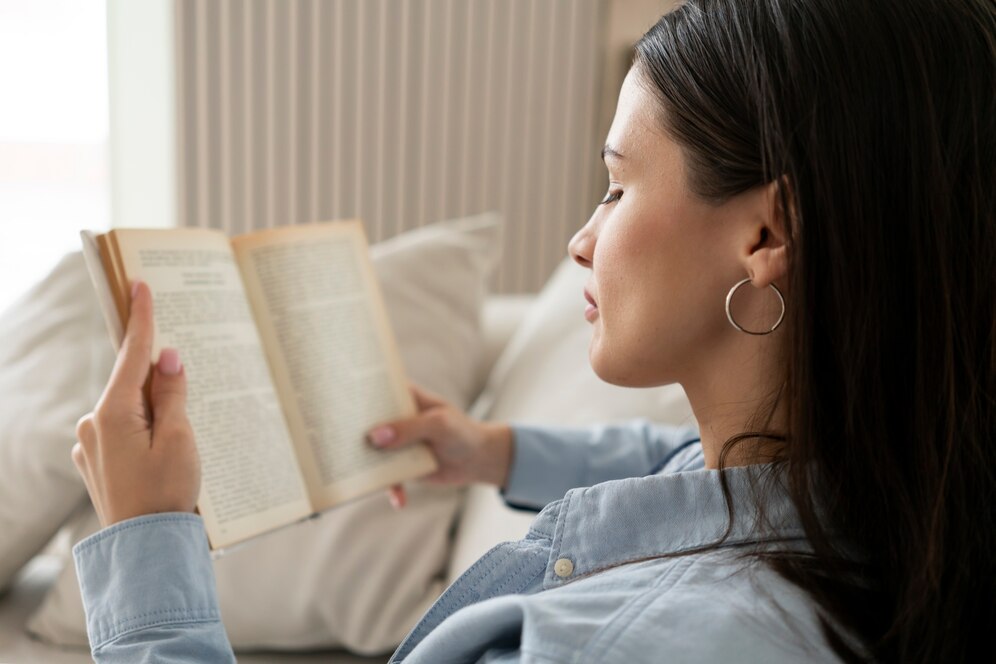Many of us feel guilty when we take time away from our responsibilities to engage in activities we enjoy. We live in a society that often celebrates productivity and hard work, sometimes at the expense of our well-being. However, research consistently shows that leisure—far from being a waste of time—is essential for our mental and physical health, productivity, and overall quality of life. This article explores the numerous benefits of leisure activities and why making time for them should be considered a necessity rather than a luxury.
The Science Behind Leisure and Well-being
Leisure activities are those we engage in voluntarily during our free time, purely for enjoyment, relaxation, or personal satisfaction. They range from reading a book to hiking in nature, playing board games with friends, and creating art. These activities are much more than just entertainment—they play a vital role in maintaining our health and happiness.
Research has found that leisure activities can immediately improve subjective well-being by eliciting positive emotions, which leads to effective stress-coping strategies in the long term. The relationship between leisure and mental health can be explained using the broaden-and-build theory, which suggests that positive emotions experienced during leisure activities enrich our thoughts and action plans, providing personal resources that enhance our coping strategies.
When we believe leisure is wasteful, we enjoy our leisure time less, especially when it comes to purely pleasure-driven activities like hanging out with friends or relaxing. Those who don’t enjoy leisure activities tend to be more depressed, anxious, and stressed. This suggests that our happiness may be influenced by whether we engage in leisure or how we value it.
Mental Health Benefits
Leisure time provides numerous mental health benefits that are increasingly important in our fast-paced world:
Stress Reduction
Engaging in enjoyable activities helps reduce stress by providing a break from daily pressures. Participating in leisure activities significantly reduces depression by helping to increase positive mood and moderate the balance in life. These activities allow us to escape into a calm atmosphere, which lowers our heart rate and improves our mood.

Photo by prostooleh on Freepik
Resilience Building
Regular engagement in leisure activities promotes resilience—our ability to bounce back from difficulties. Leisure can act as a “buffer” against stressful experiences by promoting positive emotions related to self-fulfilment and well-being.
Mental Restoration
Downtime acts as a mental reset button, allowing individuals to recharge and rejuvenate. Just as machines need regular maintenance, our minds require moments of stillness to operate efficiently.
Enhanced Emotional Well-being
Leisure provides a context for experiencing positive emotions directly linked to health and well-being. It offers opportunities to express creativity and find meaning outside work obligations.
Physical Health Benefits
The benefits of leisure extend beyond mental well-being to tangible physical health improvements:
Improved Physiological Markers
Studies have linked leisure participation to lower blood pressure, cortisol levels, waist circumference, and BMI. These improvements contribute to better overall health and reduced risk of chronic diseases.

Photo by nensuria on Freepik
Enhanced Immune Function
Regular participation in leisure activities helps enhance the immune system, potentially aiding longevity.
Better Physical Functioning
Physical leisure activities improve cardiovascular health and overall physical functioning, creating a positive cycle in which better physical health supports continued activity.
Social Connection Through Leisure
Humans are inherently social beings, and leisure provides critical opportunities for meaningful connection:
Building Relationships
Leisure activities, especially those done with others, strengthen bonds between family and friends. Planning activities with friends or family can strengthen these bonds—whether it’s a weekly game night or a monthly hike, shared experiences create lasting memories and cultivate deeper connections.

Photo by freepik
Creating Community
Participation in leisure activities facilitates social integration and helps build supportive networks. These connections are vital for both individual and community well-being.
Developing Social Skills
For children and adults alike, leisure contexts provide opportunities to practice social interaction in low-pressure environments. Leisure promotes social interaction, giving opportunities to interact with others and share common experiences, improving peer acceptance and facilitating better family relations.
Just as importantly, free time allows us to connect with others in a way that values them for their own sake. This type of genuine connection is increasingly rare in our transaction-focused world.
Leisure and Productivity: A Surprising Connection
Contrary to the belief that leisure detracts from productivity, research suggests it actually enhances our effectiveness at work:
Creativity and Innovation
Many groundbreaking ideas emerge when the mind is at rest. Engaging in leisure activities allows the brain to explore new avenues, fostering creativity that can be applied to professional endeavours.
Improved Focus
Taking time for leisure can enhance productivity. Giving your mind a break allows for better focus during work hours. A well-planned leisure schedule can lead to greater efficiency and creativity in other areas of life.
Enhanced Problem-Solving
Leisure activities that challenge our mental abilities, such as card games and puzzles, can improve memory and enhance problem-solving skills.
The misconception that non-stop work leads to higher productivity is widespread but incorrect. The quality of work often suffers when individuals neglect the importance of leisure. Scheduled breaks and leisure time improve focus and efficiency when tackling tasks.
Personal Growth Through Leisure
Leisure provides unique opportunities for personal development:
Finding Purpose
While work provides one source of meaning, leisure activities provide a sense of purpose beyond professional identities. Leisure activities can improve the quality of life by allowing individuals to feel good at whatever they undertake.
Self-Discovery
Exploring various leisure activities helps individuals discover their strengths, interests, and passions. One’s leisure interests reveal what makes a person unique and should be celebrated.
Skill Development
Many leisure pursuits involve learning and mastering new skills, which builds confidence and competence. This is especially important for children and youth as they develop.
Increased Self-Esteem
Successful engagement in leisure activities enhances self-worth and confidence. This is particularly important for those facing challenges in other areas of life.

Photo by our-team on Freepik
Types of Leisure Activities
Not all leisure is created equal, though all forms have value in different contexts:
Structured vs. Unstructured Leisure
Structured leisure activities are associated with regular participation schedules, adult direction, rule-guided interaction, and an emphasis on skill development. Examples include organized sports, music lessons, or club activities.
Unstructured leisure activities are generally spontaneous, occur without formal rules or adult direction, and have fewer skill development opportunities. Examples include watching television, listening to music, or hanging out with friends.
While both types are valuable, research consistently shows a positive relationship between participation in structured leisure and positive youth development for building strengths and flourishing.
Categories of Leisure Activities
Leisure activities can be broadly categorized into:
- Physical leisure activities: Sports, exercise, dancing, hiking
- Cognitive leisure activities: Reading, puzzles, learning new skills
- Social leisure activities: Family gatherings, meetups with friends, community events
- Creative leisure activities: Art, music, writing, crafting
A balanced approach to leisure might include activities from multiple categories to support different aspects of well-being.
Making Leisure a Priority
Despite knowing the benefits, many struggle to incorporate leisure into their busy lives. Here are strategies for making leisure a priority:
Scheduling Leisure Time
- Prioritize and schedule: Treat downtime with the same importance as work commitments. Schedule leisure activities just as you would meetings or deadlines.
- Set boundaries: Establish clear boundaries between work and personal time, particularly regarding technology use.
- Start small: Even brief periods of leisure can provide benefits. Begin with small pockets of leisure time and gradually increase.

Photo by freepik
Overcoming Guilt
Many people feel guilty about taking time for leisure, viewing it as “unproductive.” To overcome this:
- Recognize leisure as essential: Understand that leisure is not optional but necessary for optimal functioning.
- Challenge negative beliefs: If you believe leisure is wasteful, work to reframe this thinking by focusing on the concrete benefits.
- Practice mindful leisure: Being fully present during leisure activities maximizes their restorative benefits.
Conclusion
Leisure is far from a waste of time—it’s essential to a balanced, healthy life. From mental and physical health benefits to enhanced productivity and personal growth, the evidence clearly shows that making time for enjoyable activities is a necessity, not a luxury.
In the words of Dr. Conor Kelly, associate professor of theology, “In these ways, free time is an important buffer against burnout that allows us to be our best selves in the rest of our everyday lives.” By valuing and prioritizing leisure, we invest not only in our immediate well-being but in our long-term health, relationships, and effectiveness in all areas of life.
The next time you feel guilty about taking time for activities you enjoy, remember: leisure isn’t just nice to have—it’s essential for thriving. As the old proverb wisely states, “All work and no play makes Jack a dull boy.” Science now confirms what common wisdom has long suggested—balance is key, and leisure is a vital part of that balance.











